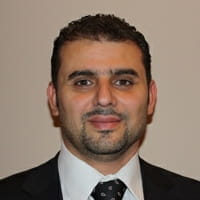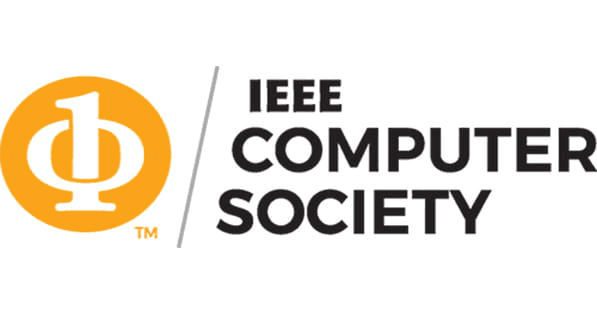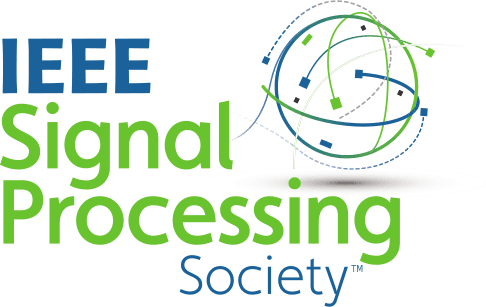Workshops
Workshop Paper submission deadline: March 20, 2021
New submission deadline for the AI-Sports workshop: March 27, 2021 (Extended)
Time
TBD
Room
TBD
Organizers
Prof. Weisi Lin, Fellow of IEEE, Nanyang Technological University, Singapore.
Prof. Patrick Le Callet, Fellow of IEEE, University of Nantes, France.
Prof. Mai Xu, Beihang University, China.
Dr. Wei Gao, Peking University & Peng Cheng Laboratory, China.
Dr. Junle WANG, Tencent, China.
Description
Traditionally, the multimedia content that most people enjoy every day is passive and/or linear. Nowadays, along with the evolution of hardware and network, people have much more opportunities to interact with multimedia content. For example, the AR/VR technology allows the users to select the view proactively, sometimes with the possibility to interact with the viewing environment. The emerging cloud gaming technology these years allows the users to do dense interactions with others through “video service”.
In order to enhance the Quality of Experience of end-users in such advanced and non-traditional multimedia applications, studies on quality assessment approaches are challenging but profitable. As the final step of the video processing chain, the assessment of QoE can be used to monitor or optimize any possible steps of the chain and eventually the entire video service pipeline.
The aim of this workshop is to bring together academic researchers, industrial practitioners, and individuals working in these research areas. Any original research related to one or any aspects of QoE of all types of interactive multimedia applications are welcomed.
Scope and Topics
Topics of interest include but are not limited to:
- Quality assessment of 3D/CGI content/point clouds, 360° video, 3DoF+/6DoF, volumetric video.
- QoE for emerging virtual reality or QoE-driven virtual reality processing: quality in interactive and immersive environments (virtual/augmented/ mixed realities).
- QoE-driven video/graphics coding, streaming in cloud gaming.
- Subjective and objective assessment of cloud gaming scenarios (visual quality, interaction quality, experience)
- Gameplay quality: measurement, modeling, benchmarking.
- Player-cloud and player-player interactions: effects of delay and visual quality limitations on gameplay, and methods to improve them.
- QoE methods for haptic, audio, visual systems.
- QoE methods for drone images/videos or QoE-driven drone image/video processing.
- QoE-driven image/video processing: the new research on image retargeting, view-synthesis, super-resolution quality assessment.
- QoE methods for other application situations: any application situation which can import the QoE, such as screen content image/video.
- QoE methods for visual multimedia based on machine learning: research on QoE methods for any kind of visual information based on new technologies, and deep learning is encouraged.
- QoE-driven mobile visual multimedia processing: the QoE applications on mobile situations and the new research on mobile visual multimedia processing based on QoE.
Important Dates
- Workshop Paper submission deadline: March 20, 2021
Time
July 9, 2021
Room
TBD
Organizers
Huang-Chia Shih (hcshih [AT] saturn.yzu.edu.tw), Yuan Ze University, Taiwan.
Rainer Lienhart (lienhart [AT] informatik.uni-augsburg.de), Augsburg University, Germany.
Takahiro Ogawa (ogawa [AT] lmd.ist.hokudai.ac.jp), Hokkaido University, Japan.
Thomas B. Moeslund (tbm [AT] create.aau.dk), Aalborg University, Denmark.
Jenq-Neng Hwang (hwang [AT] uw.edu), University of Washington, USA.
Websites
https://oz.nthu.edu.tw/~d917904/AI-Sports21.html
Description
Utilization of various sensors for bioinformatics data acquisition has become increasingly popular in recent years. Meanwhile, research fields like computer vision, sensing technology, wearable technology, machine learning and data-driven approaches recently made huge advancements and have massively impacted many aspects of sports, the joint assessment of multiple modalities for sport data analytics offers appealing innovations to advance the field.
Data-driven machine learning technique plays an important role in developing and improving sports in recent years. Coaches and athletes are able to utilize this data to make better decisions for developing their team. Popular sports like football fuel the drive for technological advances in AI and machine learning. With the current technology, specific details and strategies can be extracted from the data to help coaches and players see the whole picture with clarity. By adding context to the collected data, coaches and analysts can allocate more time towards developing strategies.
The growing number of potential programs shows promising technological advances in the sports industry, but limits are becoming more obvious. There is not enough data to effectively create learning and artificial intelligence. Sporting research has already gone underway by big companies like Google and Facebook. It is apparent that big data sports analytics is a strong, positive correlation to maximizing a sport team’s potential, and any team will find themselves at a severe disadvantage if they do not actively incorporate themselves with big data analytics.
Scope and Topics
This workshop is open to anyone interested in sports content analytics. To cover the rapid progress of emerging areas we plan to focus our target field in three topics:
- Sports tactic analysis using machine learning and visual processing. This session aims at applications in domains such as event reasoning and tactic analysis. In offline service, historical records can be used to analyze video content through machine learning. In online service, discovered latent knowledge can be used for real-time tactic recommendation. Recently, optimization of player positioning, posture, and movement with deep learning method is attracting much attention.
- Applying big data/machine learning techniques to personalized athletic training and rehabilitation. This session highlights integration of computation into athletic training and recovery. There are tons of data on sports and health care being collected but very few of them are analyzed. There is enormous potential in the data to revolutionize the sports industry and to drastically improve athletes’ performance and health. Big data analytics in sports are uncommon but history has revealed that utilizing the data correlates with faster and efficient improvement in an athlete's’ performance.
- Data-driven ghosting and prediction for sports. This workshop plans to publish papers presenting novel ghosting and prediction schemes. Sports data is analyzed to create “ghosts” of players and enables them to visually study a situation and compare what the ghosts would have done and what they should have done. The research field includes human computer interaction, AR/VR/MR data visualization, and UX/UI interaction design with human factors.
Important Dates
-
Workshop Paper submission deadline: March 13, 2021 - New Workshop Paper Submission deadline: March 27, 2021 (Extended)
- Workshop Paper acceptance notification: April 8, 2021
- Camera-Ready Workshop Paper submission deadline: April 13, 2021
Time
TBD
Room
TBD
Organizers
Frederic Dufaux, CNRS, France.
Homer Chen, National Taiwan University, Taiwan.
Ivan V. Bajić , Simon Fraser University, Canada.
Søren Forchhammer, Technical University of Denmark, Denmark.
Xiaolin Wu, McMaster University, Canada.
Description
The aim of hyper-realistic media is to faithfully represent the physical world. The ultimate goal is to create an experience, which is perceptually indistinguishable from a real scene. Traditional technologies can only capture a fraction of the audio-visual information, limiting the realism of the experience. Recent innovations in computers and audio-visual technology have made it possible to circumvent these bottlenecks in audiovisual systems. As a result, new multimedia signal processing areas have emerged such as light fields, ultra-high definition, high frame rate, high dynamic range imaging and novel 3D audio and sound field technologies. The novel combinations of those technologies can facilitate a hyper-realistic media experience. Without a doubt, this will be the future frontier for new multimedia systems. However, several technological barriers and challenges need to be overcome in developing the best solutions perceptually.
This second ICME workshop on Hyper-Realistic Multimedia for Enhanced Quality of Experience aims at bringing forward recent advances related to capturing, processing, and rendering technologies. The goal is to gather researchers with diverse and interdisciplinary backgrounds to cover the full multimedia signal chain, to efficiently develop truly perceptually enhanced multimedia systems.
Scope and Topics
We seek unpublished high quality papers within, but not limited to, the following topics:
- Lightfield, point-cloud, volumetric imaging.
- High Dynamic Range imaging, Wide Color Gamut, Ultra High Definition.
- Multichannel, 3D audio and sound field systems, audio rendering.
- Hyper-realistic display technologies.
- Human perception modeling, perceptually-inspired processing.
- Processing and coding of hyper-realistic multimedia content.
- 3D audio / spatial audio.
- Subjective and objective quality assessment.
- Quality of experience.
- Hyper-realism and immersiveness.
- Human vision, clinical and experimental psychology and psychophysics.
Important Dates
- Workshop Paper submission deadline: March 20, 2021
Time
TBD
Room
TBD
Organizers
Weiyao Lin (wylin [AT] sjtu.edu.cn), Shanghai Jiao Tong University, China.
John See (johnsee [AT] mmu.edu.my), Multimedia University, Malaysia.
Xiatian Zhu (eddy.zhuxt [AT] gmail.com), Samsung AI Centre, Cambridge, UK.
Description
With the rapid growth of video surveillance applications and services, the amount of surveillance videos has become extremely "big" which makes human monitoring tedious and difficult. Therefore, there exists a huge demand for smart surveillance techniques which can perform monitoring in an automatic or semi-automatic way. A number of challenges have arisen in the area of big surveillance data analysis and processing. Firstly, with the huge amount of surveillance videos in storage, video analysis tasks such as event detection, action recognition, and video summarization are of increasing importance in applications including events-of-interest retrieval and abnormality detection. Secondly, semantic data (e.g. objects’ trajectory and bounding boxes) has become an essential data type in surveillance systems owing much to the growth of its size and complexity, hence introducing new challenging topics, such as efficient semantic data processing and compression, to the community. Thirdly, with the rapid growth from the static centric-based processing to the dynamic computing among distributed video processing nodes/cameras, new challenges such as multi-camera analysis, person re-identification, or distributed video processing are being issued in front of us. To meet these challenges, there is great need to extend existing approaches or explore new feasible techniques.
Scope and Topics
This workshop is intended to provide a forum for researchers and engineers to present their latest innovations and share their experiences on all aspects of design and implementation of new surveillance video analysis and processing techniques. Topics of interests include, but are not limited to:
- Action/activity recognition, and event detection in surveillance videos.
- Action/activity recognition, and event detection in surveillance videos.
- Multi-camera surveillance networks and applications.
- Surveillance scene parsing, segmentation, and analysis.
- Crowd parsing, estimation and analysis.
- Person, group or object or re-identification.
- Summarization and synopsis of surveillance videos.
- Big Data processing in large-scale surveillance systems.
- Distributed, edge and fog computing for surveillance systems.
- Data compression in surveillance systems.
- Low-resolution video analysis and processing: Recognition and object detection, restoration, denoising, enhancement, super-resolution
- Scalable surveillance video analysis with fast model inference and low memory footprint.
- Surveillance from multiple modalities, not limited to: UAVs, satellite imagery, dash cams, wearables.
Important Dates
- Workshop Paper submission deadline: March 20, 2021
Workshop Chairs







